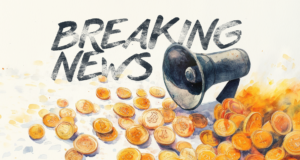USPS Leaks Customer Data to Meta, Snap, and LinkedIn

The United States Postal Service (USPS) inadvertently shared email addresses from its Informed Delivery service with companies such as Meta, Snap, and LinkedIn. This happened via a tracking tool meant for analyzing website visits.
On this page
The United States Postal Service (USPS) inadvertently shared email addresses from its Informed Delivery service with companies such as Meta, Snap, and LinkedIn. This happened via a tracking tool meant for analyzing website visits.
USPS officials claimed they were unaware of the issue and confirmed that the data leak was closed after the investigation. The full scope of the problem is still unclear, considering more than 62 million people used Informed Delivery actively as of March 2024.
The Postal Service does not sell or provide any personal information that is collected from this analytics platform to any third party, and we were unaware of any configuration of the platform that collected personal information from the URL and that shared it without our knowledge with social media
stated USPS spokesperson Jim McKean.
Apart from email addresses, the tracking code gathered technical details about users' computers and browsers in a pseudonymized manner (where owners' names are encrypted). Analysts suggest this data could still be valuable to advertisers.
USPS has not clarified whether it will request the deletion of confidential data from these tech companies. The USPS Office of Inspector General (the governmental oversight authority) has not yet commented on the matter.
The content on The Coinomist is for informational purposes only and should not be interpreted as financial advice. While we strive to provide accurate and up-to-date information, we do not guarantee the accuracy, completeness, or reliability of any content. Neither we accept liability for any errors or omissions in the information provided or for any financial losses incurred as a result of relying on this information. Actions based on this content are at your own risk. Always do your own research and consult a professional. See our Terms, Privacy Policy, and Disclaimers for more details.


























